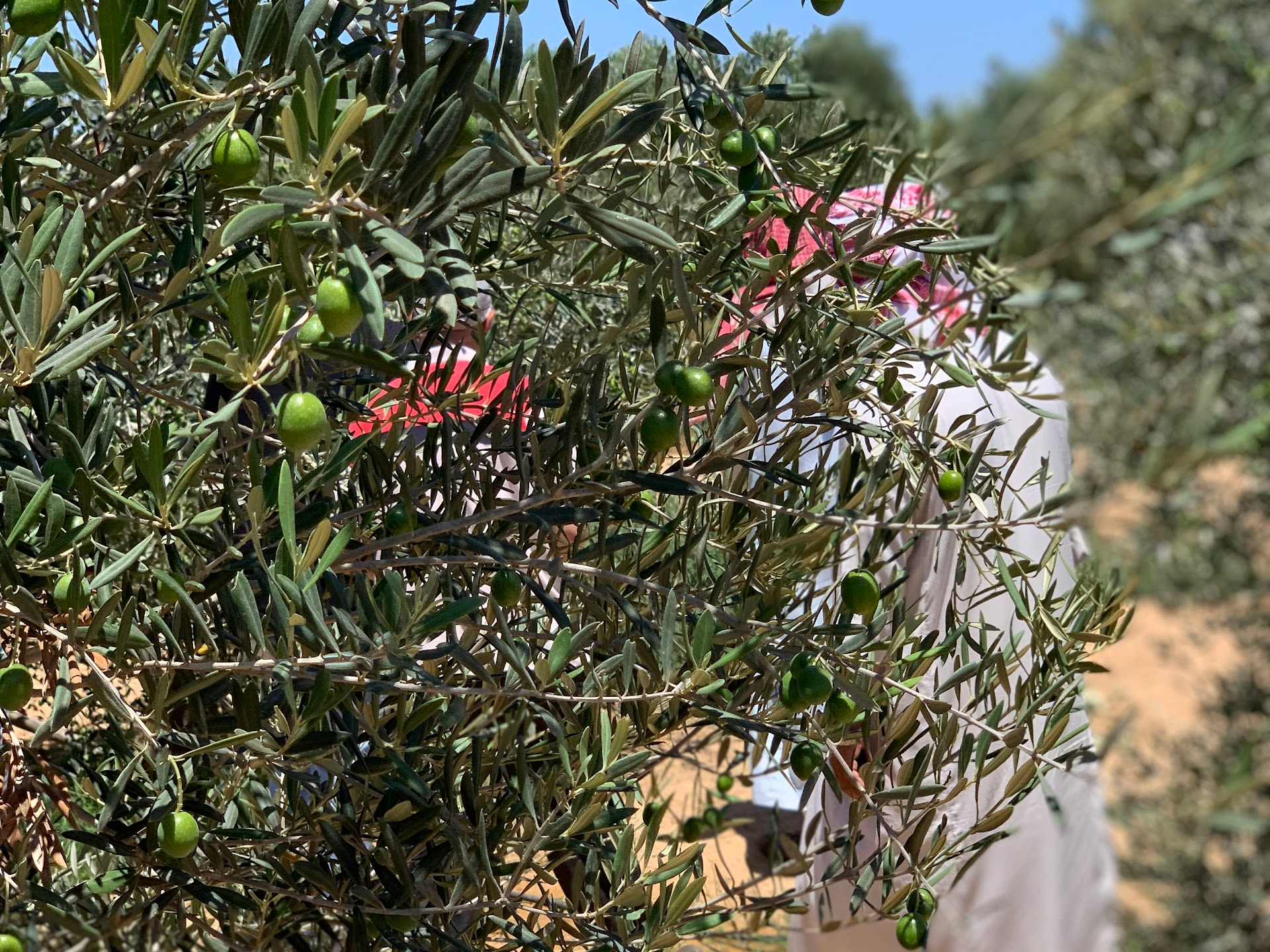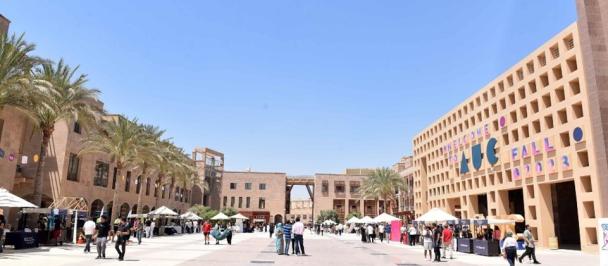Almost 28 percent of Egypt’s total workforce are involved in the agriculture sector. UNDP Photo/Yomna Mohamed
The challenges of smallholder farmers in Egypt
Almost 28 percent of Egypt’s total workforce are involved in the agriculture sector, with the majority making a living from small-scale farms.
But while adaptations in small-scale farming are widely seen as a route to more sustainable and secure food systems, smallholders are faced with a range of daunting economic and environmental challenges.
In Egypt, these challenges for smallholders include high costs of imported agricultural inputs, lack of access to technical knowledge and access to fair markets.
These challenges are being greatly compounded both by unsustainable farming practices and the effects of climate change, including further soil deterioration, increased water scarcity, and sudden extreme weather events.
These factors have led many small-scale farmers into long-term debt. And this socio-economic vulnerability has been rendered even made worse over the past two years by fluctuations in the local and global markets due to the pandemic.
The UNDP Accelerator Lab team in Egypt have been talking with smallholders on the ground to explore innovative solutions to help farmers gain greater stability and improve their incomes while at the same time adopting more sustainable practices.
Worldwide, development agencies and experts are also looking into ways of integrating small-scale farmers into global and domestic markets and of including smallholders in the development process.
This is because increasing farmers’ participation in markets would expand their choices and enable them to make more informed and free decisions on how and what to produce and how to invest in their farms, their families and themselves.
Talking with smallholders on the ground to explore innovative solutions to help farmers gain greater stability and improve their incomes. UNDP Photo/Yomna Mohamed
Making contract farming more inclusive
We went to Egypt’s Matruh governorate and spent some time listening and talking to farmers to find out what can be done to expand their choices.
We decided to focus our exploration on olive-farming, since this crop was in high market demand during this season and also because of UNDP’s existing network in the area.
One of the first lessons we learnt is that there is a strong need for innovative solutions that can simultaneously tackle the multiple constraints farmers face in marketing, technology and finance. One of these solutions could be the introduction of ‘contract farming’ schemes. Such schemes have proven effective for reducing market failures related to price risk while increasing access to productive inputs, credit, technology and knowledge.
While contract schemes can improve productivity and incomes, however, there is a risk they may also exclude farmers who suffer losses as climate change grips.
Back at the Lab we started thinking about how we could help make contract farming more inclusive. In particular, we looked into whether greater involvement from the private sector could be part of the solution.
Engaging the private sector
To explore this solution, we partnered with an Egyptian start-up called Mozare3. This company is seeking to transform the dynamics of contract farming by launching ‘smart agritech’ solutions. The aim is for these solutions to become the marketing and financing arm of small-scale farmers.
In order to identify developmental opportunities, we needed to map out and understand the whole journey of Matruh olives from ‘farm to fork’.
In line with the Lab’s approach, the first stage of our investigation was all about listening to local communities.
We visited a dozen or so farms of different sizes, as well as local processing centres. Some of these centres were simple and manually operated while others were more automated. We also visited local markets to see how the olives are positioned and offered.
Some lessons learnt
Our conclusion from this exploration was that there are two key potential motives for the private sector to engage in exploring somewhat riskier opportunities: (i) shortages in the supply of crops in high demand, and (ii) scaling-up ambitions.
Many businesses are already beginning to witness the direct impacts of climate change on their business operations.
In the olives market, which is sourced from various governorates throughout Egypt, a surge in heatwaves caused significant shortages in crop supply in 2021.
This surge led to major losses not only for farmers but also for manufacturers, processers and exporters who could not access sufficient volumes from traditional supplying farms.
Such immediate supply shortages could incentivise agribusinesses to engage in contract farming schemes in areas outside their traditional main supply chains, including less developed areas such as Matruh.
As a second motivation for businesses to invest in contract farming in less developed areas, new segment suppliers offer the promise of scale in line with business growth ambitions and thus might be worth a riskier investment.
Another lesson we learnt is that timing is key for facilitating farming contracts. For example, approaching farmers late in the olive season and not closing deals early did not allow for proper agronomy support for farmers or for locking in a competitive price for processing companies. This is something to keep in mind for the next season.
Efforts should also be focused on further developing the value chain of olive products, which our expert partners from Mozare3 found to be less developed in Matruh than other regions – and also helping to remove existing structural barriers such as water scarcity and outdated agricultural practices.
On this basis we jointly conclude that investing in better access for local farmers to education, resources and technology is a key way forward to achieve a more sustainable tomorrow.
If you are interested in working with us, get in touch at comm.eg@undp.org or connect through our social media platforms @UNDPEgypt.

 Locations
Locations

